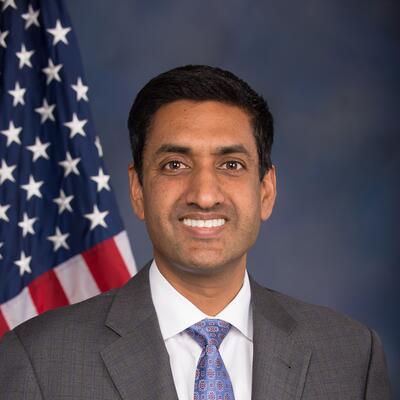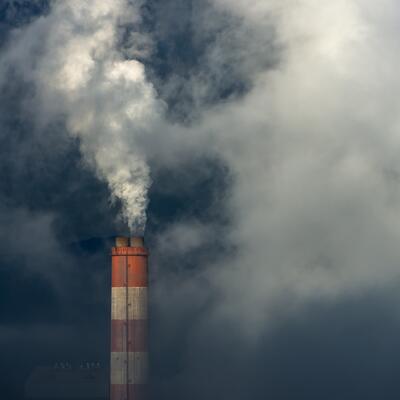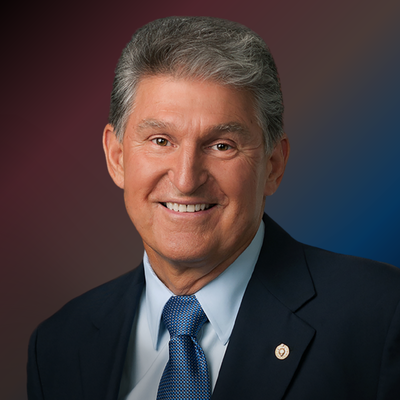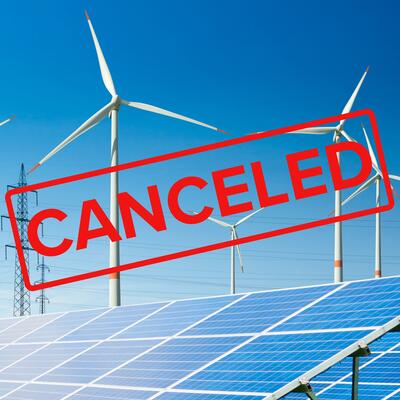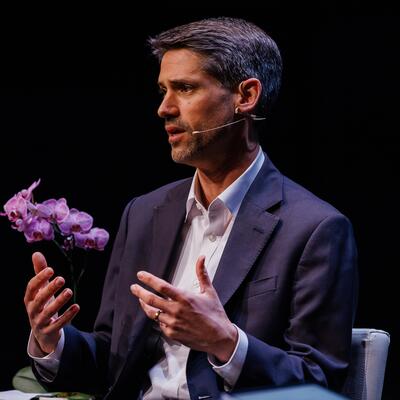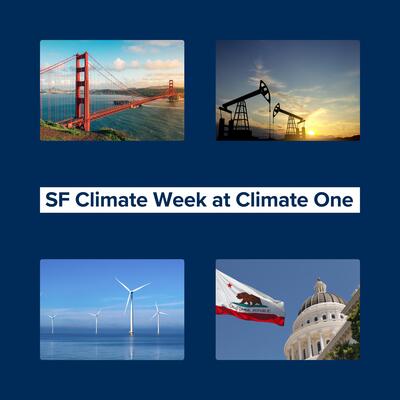
Congressman Jared Huffman: Live from SF Climate Week
Guests
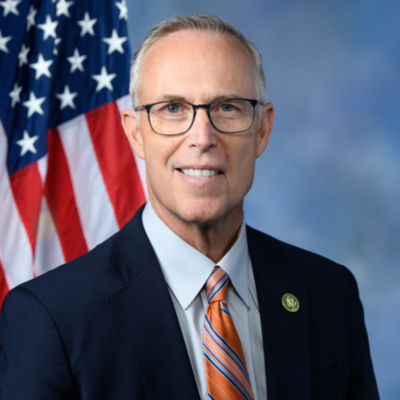
Jared Huffman
Summary
Rep. Jared Huffman has represented California’s 2nd District — from the Golden Gate Bridge to the Oregon border — for over a decade. During that time, he has championed climate issues and fought to protect California’s public lands, prevent offshore drilling, pushed for financial institutions to divest from fossil fuels, and introduced legislation to tackle plastic pollution.
Now, turmoil in the federal government is putting all those protections at risk. Advocating for climate action is pretty challenging when terms like "climate change” are being erased from government websites. How can Rep. Huffman advance his climate agenda when those who hold the most power are going hard in another direction?
Resources From This Episode (2)
Full Transcript
Note: Transcripts are generated using a combination of automated software and human transcribers and may contain errors. Please check the actual audio before quoting it.
Ariana Brocious: I’m Ariana Brocious. We at Climate One have just wrapped up our live programming at San Francisco Climate Week. For today’s bonus episode I want to highlight an insightful and impactful conversation that Greg Dalton had with Congressman Jared Huffman of California, ranking member of the House Natural Resources Committee. Greg takes it from here.
Greg Dalton: Congressman Jared Huffman has been in the house for more than a decade, representing the region from the Golden Gate Bridge all the way up to the Oregon border. He has championed climate issues. Former, NRDC lawyer fought to protect California's public land to prevented offshore oil drilling. He's pushed for financial institutions to divest from fossil fuels and introduce legislation to tackle plastic.
Pollution, please welcome representative Jared Huffman to the Climate one stage.
Jared Huffman: Thank you, Greg,
Greg Dalton: Good to see you.
Jared Huffman: Right,
Greg Dalton: Well, lot's been going on, lots to talk about for sure. I think Bloomberg summed it up with a headline, years of climate action demolished in days. There's so much going on aimed at public health, greenhouse gas emissions just everywhere. How do you keep track of it all and what's most on your mind?
Jared Huffman: Um, unfortunately I have to try to track all of it and that, you know, could consume all my efforts just in the climate space. But I've got, you know, the rest of the jurisdiction of the House Natural Resources Committee now that I'm the ranking member. Mm-hmm. And then I've got the broader attacks on our democracy and the economic chaos.
So it is a lot. All of us are having our bandwidth. Tested,
Greg Dalton: uh, in and that's the point.
Jared Huffman: Yeah. I think it is the point.
Greg Dalton: Yeah. there's some who say that there's this weapons of mass distraction, that some of what we're seeing is like, flash over there, you know, look over there.
'cause I don't want you to look over here. How do you know what to focus on?
Jared Huffman: I haven't found a formula that I can articulate yet, but I think you have to take these things one at a time and, uh, you, you know, you kind of figure out that maybe the fight over renaming the Gulf of Mexico is not, you know, where we ought to put all of our effort, but
Greg Dalton: colonizing Greenland.
Yeah.
Jared Huffman: Yeah. Um, but there's some other stuff that we need to take very seriously, and I would argue that the, the things that are fundamentally focused at tearing down our democratic institutions at establishing awful new precedents, uh, such as what he's doing on immigration policy,
Greg Dalton: Mm-hmm. Um,
Jared Huffman: his efforts to target political opposition.
I mean, these are all major steps on the path to totalitarianism and I, I sort of give those highest priority.
Greg Dalton: Right. And I, you know, I've been working on climate for almost 20 years and have said, often said like climate's sort of the meta issue, everything. It's like, if we don't have a stable climate, you don't have, you know, welfare, lots of things.
Uh, and I'm actually more worried about democracy than climate. In some
Jared Huffman: way. I'm right with you. I think right now the biggest climate issue is democracy. Mm-hmm.
Greg Dalton: There's a business case for, for clean energy. It is cheaper. It is, it can be profitable. It's, it's clean, it's better in so many ways, clean energy.
The business case for democracy is a business case on the other side, which is like you can make money, you know, with. Undermining democracy was less democratic ways. That worries me.
Jared Huffman: Some people are getting fabulously rich at it, aren't they? Yeah.
Greg Dalton: Yeah, they are. Among the actions, that's happening is the National Environmental Policy Act, something that is a little bit wonky.
But if you ever wanna like, you know, build something in your back yard or near a stream, or kind of do anything in this country that comes into play, it's a 55-year-old law that directs federal agencies to consider environmental and cultural impacts from new development projects. Now each agency is being asked to kind of look at it differently.
You know, tell us why we should care about this. Why does it
Jared Huffman: Right. Well, I mean, I could take you back to the, the bad old days, uh, of the 1960s and seventies when we didn't have some of these bedrock environmental laws, and there's probably a few people in your audience old enough to remember when we had rivers that caught on fire and we couldn't put them out when we pronounced entire bodies of water like the Great Lakes.
Devoid of aquatic life and never fishable again. Uh, when we were losing iconic species like our, our national bird, the bald eagle because of DDT and so many other things. Um, so these foundational environmental laws that were bipartisan, uh, when they passed, most of them in the 1970s have really given us tremendous progress in, in the fight against that.
Kind of, uh, environmental destruction, but, uh, they've always had opponents and right now there is a lot of energy behind tearing them down. Uh, and certainly Donald Trump is, um, is doing that in, in every way that he possibly can.
Greg Dalton: Right? So what's at risk is we go back to those days of rivers on fire, you know, dirtier, that sort of thing.
Uh, is there anything that, that states can do? You know, what's the re what's, what's the protection for that? 'cause? No. Now you know, what's the.
Jared Huffman: Yeah, a state like California can and, uh, can do a lot and, and has done a lot. We've got state laws that mostly mirror all of our federal environmental protections, and in many cases go further.
And in some cases we had state laws like the Porter Cologne Water Quality Act, before we had the Federal Clean Water Act. So California has always been a leader in this space. The problem is. Water pollution doesn't stop at state boundaries. Air pollution doesn't stop wildlife move and go and without regard for state jurisdiction.
So you really do need national standards and national laws to protect these natural and national resources.
Greg Dalton: Right. And we've seen, you know, obviously in the first administration there was sort of, you know, attempts to, to shrink, uh, the EPA, uh, these institutions come, can come back, you know, uh, that's a lot of what, you know, Biden tried to do is, you know, but, um, but is it different this time?
What's happening in terms of the, you know, approach to the EPA and others? We didn't have Elon Musk last
Jared Huffman: Yeah.
Greg Dalton: It is
Jared Huffman: It, it's just different in every way. Um, look, I've been fighting. Republicans in Congress on some of these issues for as long as I've been there, and I'm in my 13th year now in Congress. So the, the attacks are not new, but the, the tactics and the ferocity, uh, and the impunity with which they're being advanced, um, that is new.
I mean, republicans that I have been working with used to. Have some limits to where they would go. They wouldn't call for out outright repeal of things like the Endangered Species Act. Uh, they would say they supported all of the above energy portfolios. Mm-hmm. Look at what we're dealing with right now.
I mean, Donald Trump has declared an energy emergency, a fake energy emergency at a time when we're producing more energy of every kind, that we ever have more fossil fuel exporting. I mean, we're, we're setting all kinds of records, but he's declared this crisis, this emergency. Um, and then used it to try to fast track only fossil fuel projects.
Greg Dalton: Because that emergency power gives him more power.
Jared Huffman: Exactly. Yeah. And so just this week they announced that they are gonna pretend to reduce federal permitting for fossil fuel projects to just 28 days under this emergency that they have declared. Um, and you know, my feeling is I hope big oil is stupid enough to try to take advantage of that new permitting avenue that the president is attending.
'cause they will get sued and they will lose.
Greg Dalton: Well, but even, you know, the head of ExxonMobil has said, we're not looking to expand supply right now. 'cause oil is what, $60? You know, uh, the not necessarily, uh. Gonna put a bunch of capital at risk at market where it is. So he, even though, you know, the US government can say these leases are are available, it doesn't mean anyone bids on 'em, doesn't mean anyone puts in there.
So
Jared Huffman: we are a wash in fossil fuels. There is no crisis, there is no emergency, there is a climate crisis because of all this fossil fuel extraction and burning. And that's really the problem. That's, that's the moment that we're in, in this, this Earth Week.
Greg Dalton: Right. Which also raises the question just because someone announces something there's executive order doesn't mean that it will be thus, do you think that we sometimes people overreact to these, to these executive
Jared Huffman: I I don't even call them executive orders anymore. I, I call them imperial edicts, and you're exactly right, Greg. They have no legal effect. I mean, we've really gotta do some civics education in this country.
We gotta remind people that the entirety of the lawmaking authority rests with the Congress. The president has no lawmaking authority, none. He can sign the stuff that Congress sends to him. And then his entire job under Article two is to see to it that the laws are faithfully executed, the laws that Congress puts on his desk, and we have lost that somehow.
This Congress in particular has just fecklessly surrendered all of its Article one authority, article one. Many times longer than Article two, if you read the Constitution. Mm-hmm. Clearly set up to be the main power center of our republic. The main check and balance on abuses of power, corruption, lawlessness, uh, but only if a Congress is willing to do the stuff that our founders told it to do under Article one.
Greg Dalton: Right, and there's a reason why it is Article one. Um, EPA administrator Lee Zelin has announced his agency will reconsider the so-called endangerment finding a 2009 conclusion that carbon dioxide pollution endangers human health and welfare. I. Uh, this is the basis of many climate regulations. It's, you know, it's based on a Supreme Court, uh, decision, Massachusetts versus EPA.
So what does it mean if he succeeds in getting rid of the endangerment finding?
Jared Huffman: Yeah. We have to find a better term for this endangerment finding because it sounds so esoteric
Greg Dalton: to those people. Right? Uh,
Jared Huffman: but what it really means is that carbon pollution is bad for people and bad for the environment.
And that's like self-evident to anyone who. Listens to the
Greg Dalton: song. It seems like RFK said sugar is poisoned. They needs to borrow some of that, right?
Jared Huffman: That's pretty
Greg Dalton: right?
Jared Huffman: Um, but yeah, this, this was affirmed, upheld by the, the Supreme Court previously. It shouldn't be controversial at all. Um, and to try to take it away.
Now that should be wildly controversial and of course that will be fought mightily in the courts. Um, and the question is, you know, whether some of these conservative justices will. Reach a different outcome this time.
Greg Dalton: Right. Just seems like there's this, there's this, the, the time offset is like, so much is happening so fast and like the courts are like this sort of like chasing after the bus after it's long gone.
So how do you deal with like the, you know, the timeframes of the courts so slow, the executive branch through these imperial edicts moving so fast?
Jared Huffman: Yeah. Time, uh, is probably the, the most vexing part of this whole. Challenge because we're not just in a race against carbon pollution because of what it's doing to the planet, and the fact that it's gonna pretty soon unlock all kinds of terrible feedback loops that will make it even harder to stabilize the climate.
Um. But we have a narrowing window of time to stop it. And when we, when these guys run out the clock in all of these different ways, when they try to rewind the clock by making coal great again and doing all of these things that you're seeing from this administration, they're not gonna be successful in the long term, but they're going to take time away.
And that really hurts our ability to do the right thing,
Greg Dalton: though. I think sometimes we focus, you know, uh, so much on the United States. Uh, this week we heard that China is gonna come up with a, a climate plan that's gonna be, you know, uh, economy wide.
We don't have that, you know, the rest of the world is not slowing down. Uh, because the US is hitting the brakes or, you know, taking a u-turn. I don't know how much time you focus on overseas, but you know, let's look at the international context. You know, Europe I think is a real climate leader these days.
Uh, it's in the interest and clearly in clean tech. China. I was in Asia recently, BYD, those cars are all over the place.
Jared Huffman: They're killing us.
Greg Dalton: I didn't see them a year ago. A year ago. Hong Kong was all Tesla. Now it's BY, D and Tesla.
Jared Huffman: Yeah. To, to me, I, I, I just think this president is trying to take us back to some mythic. Previous era, um, in almost everything, I mean in trade, trade policy from like William McKinley's presidency, uh, foreign policy that, you know, was an America first thing from long ago.
Um, these morality codes and other things that are from a bygone era, and yes, certainly with energy policy, fossil fuel is not the future. And he's literally trying to take entire industries, like he's trying to kill offshore wind outright in the United States. Well, I mean, that's just seeding the future to China.
China's gonna absolutely fill that void and eat our lunch on all the technologies and strategies that the rest of the world is gonna keep moving ahead with.
Greg Dalton: right? Iowa is 60 plus percent wind.
A lot of red states. You know, Texas is big on wind. It's, it's also seemed to be out of sync with rural America, red, red America.
Jared Huffman: It is in many cases, and we'll find out in in the next few weeks whether some of the representatives from those areas. We'll stand up and defend, uh, the clean energy tax provisions of the Inflation Reduction Act. I mean, the rubber's gonna meet the road here. Um, in the month of May
Greg Dalton: Is that right? So we've been following kind of the, there's this talk about taking a scalpel to the inflation reduction Act and kind of, well, we don't like this, we don't like, or a sledgehammer because there's been Republicans from, uh, New York and elsewhere who said, oh, slow down.
You know, keep that in place because this is, you know, Georgia, it's brought a lot of jobs to, to Georgia. So, uh, what's the timeline? What, how's that gonna play out?
Jared Huffman: Well, the, the piece of it that comes through my committee, the Natural Resources Committee, is gonna have a markup a week from Tuesday.
So we will see the, the, our committee's pieces of this broader reconciliation bill. What it'll probably involve is trying to, um, auction off a bunch of public lands to make some money for their billionaire tax cuts. It'll probably involve. You know, putting a big thumb on the scale for a bunch of fossil fuel development and then trying to pretend that that'll bring a bunch of revenue in to help pay for the tax cuts.
But there'll be a lot of action in other committees and, and it'll be in the Ways and Means committee where those tax credits get fought out. And we're about to find out, you know, we've got 20 or so House Republicans that have written a letter with some wiggle room in the letter saying that they do not wanna do away with those IRA tax credits, but it's not clear to me.
That, you know when Donald Trump leans in and starts twisting arms. Uh, that those guys will, um, stand their ground and it's also not clear which of the tax credits they care about because, you know, certainly I haven't heard many defend the EV tax credits.
Greg Dalton: kind of debt.
That's the first,
Jared Huffman: it seems like that's, that's in trouble.
Yeah.
Greg Dalton: Yeah. Uh,
Jared Huffman: could imagine some of them defending battery storage and some other things because manufacturing has located in some of their districts. Certainly some of them like biofuels, some of them like, um, a lot of them like the carbon capture stuff. 'cause that's not even a climate solution. That's basically an oil and gas giveaway.
So, you know, it's a real mix and it will be interesting to see what's left standing at the end of that.
Greg Dalton: And then the, the goal is to extend the, the 2017 tax cuts, right? And to find the money to pay for that. And so what's the timeline?
Is that something that's gonna happen before summer recess? What's the time, rod?
Jared Huffman: They've said before Memorial Day and I, I do not think they're gonna meet that deadline, but certainly things are gonna heat up in the house very quickly and we're gonna get very busy on it.
Greg Dalton: Okay, so this is the one beautiful big
Jared Huffman: one, big beautiful bill. And that's why it's gonna be so hard for those.
Republicans that we hope will defend clean energy to stand up to Donald Trump, because that will also have their border security and the other things that are, you know, sort of their articles of faith.
Greg Dalton: Okay. And as well as, um, a, a musk funded primary challenge if they don't
Jared Huffman: speak exactly. And threats to their family and all the other niceties that go along with challenging Donald Trump.
Greg Dalton: Right. So we're talking a lot about the, the bad things that are happening, though there is, you know, um, certainly questions.
The Democratic brand is pretty tarnished right now. People are wondering,
Jared Huffman: I've heard about that.
Greg Dalton: Uh, are the Democrats? Uh, you know, David Brooks, conservative columnists of the New York Times recently wrote that, uh, the administration is like a thou a supercar with a thousand horsepowers and.
Democrats are like chasing, you know, scurrying around on, on, on mopeds. So what do the Democrats stand for now? It's easy to say We're against Yeah. Him. But what D did does the party in you stand for?
Jared Huffman: Well, look, the, the Democratic party, those words always, you know, make me bristle a
Greg Dalton: a big coalition.
Jared Huffman: It is a complex organism and I am a small fiber in that organism, but all I know is that I.
Have some fellow Democrats that I serve with that I think stand for all the right things and are great champions and great messengers, and I see so much courage and leadership from them every single day. Uh, the public clearly is seeing something else or wanting to see something else. And, um, you know, I, I don't really know how to answer that except.
To explain that, um, we do not have a singular strong man leading our cult like the Republicans do. Uh,
Greg Dalton: you don't have even a leader at all.
Jared Huffman: We don't have any, because we're not in a presidential cycle. It's probably a year or two before we even have a strong sense of who the, the leading candidates for president the next time around are gonna be in the Democratic Party.
So, I, I hope people will look to some of the. Great leadership. Uh, you know, the, I think Hakeem Jeffries is doing a great job. I think my colleague Jamie Raskin, who I had in my district for the last couple days is, is a phenomenal leader and a great messenger and we've got so many other colleagues. I think Chris Murphy is out there doing amazing things and, and there's others.
I could go on and on. There's no lack of
Greg Dalton: OC and Bernie
Jared Huffman: C and Bernie, a OC and Bernie are bringing fantastic energy. To the country at a time when we really need it. So it's gonna be, I think, a platooning, a team effort from the Democrats here for the next couple years. And I, I hope people stop, you know, longing for that messaging Messiah, uh, to sort of deliver us from all of our angst.
It's a little more complicated than
Greg Dalton: Should the party have done a, a more, been more reflective, uh, exercise about why Donald Trump won the popular vote, won men of color, many districts, many, many types of people moved in his direction. Yeah. In 2024. So that could have been, you know, anti incumbent fervor around the world.
That's happened in pretty much every election around the world in 2024, which is the time that the most, uh, most people voted in the history of humanity post
Jared Huffman: post inflation, post pandemic hangover was a big part of this,
Greg Dalton: they just didn't like what your party was. Sell it.
Jared Huffman: Well, that's what a lot of people are, uh, inferring from that. Um, but I, I think you should be careful about inferring too much because, uh, a huge amount of it is that we had. Kind of a ineffective leader, uh, running for reelection when he probably shouldn't have been. And yeah, we,
Greg Dalton: he clung to power too long and,
Jared Huffman: did, he hung on
Greg Dalton: was elected to restore normalcy and protect against autocracy opened the door to it.
Jared Huffman: Yeah, so I, I mean, there's just plenty of recriminations that we could go through and, and I've seen all sorts of analysis of this. It doesn't necessarily tell you what we gotta do right now to save our democracy and to try to make sure we even get to the midterms in 2026 and have a free and fair election.
And, you know, while we're fighting with each other about all this, Donald Trump is going right after. Free and fair elections with his imperial edict trying to take over state election authority with what he rolled out today, going after ActBlue, the main democratic party fundraising platform. He's playing hardball.
He is going to try in every way to keep us from taking away any of any of his power in the 26 midterms. And so we gotta pretty quickly move beyond recriminations and get unified on the here and now.
Greg Dalton: Right. And the party is not unified. 'cause some of it wants to like, well, like he won the popular vote, so we, you need to work with some of these ideas accommodate. And others are like, you know, you know. More than 500 political scientists recently filled out a survey saying the US is moving swiftly from liberal democracy towards some form of authoritarianism.
Jared Huffman: Absolutely.
Greg Dalton: And, and your Democratic party elected kind of a status quo guy to, you know, to lead it. Right. You
Jared Huffman: I don't know anything about the, the DNC chair or you know how to characterize that.
All I know is that my. My, my congressional Democratic colleagues and I are fighting this tooth and nail in every way we can. We are in the courts where we, where we have standing and can be, we are working with litigants who do have standing and are in the courts. We are monitoring compliance with the 70 plus court orders that we've had that.
In one way or another have checked Donald Trump's power. Uh, we are at rallies and protests and trying to use every bit of our, uh, our platforms and communication tools. Um, and we're using the limited tools we have in the minority in Congress, the parliamentary mechanisms, the spotlight of our hearings and the bills we introduce and the messaging we do.
So the, the will and the fight, uh, is there, we've just gotta make this. An all inclusive, unified effort of people who love this country right now and we just don't have a lot of time for division and, and I think hand wringing and recrimination.
Greg Dalton: Right. And then the idea is that like people haven't seen this is David Brooks calling for, you know, this kind of sort of uprising and he's saying trans partisan, it can't be the usual sort of left right.
Can't be just Bernie and a OC. 'cause that, that seems like the typical kind of Oh yeah. It, it's partisan. That's like politics as usual. And many people are saying this is not politics as
Jared Huffman: It's gotta be bigger than
Greg Dalton: It's, and, but the, but what's lacking is something that people will give themselves up for that as Brooks has been saying this, we need to not just say, oh, this is bad.
What are we for? And there's not, uh, a leader or a co, you know, something 'cause de democracy's like a process. I don't really, it's kind of vague. What does it mean I vote? Okay. What is it? Other than that civil society is rallying, the nonprofits are rallying.
Jared Huffman: Yeah. Is, is democracy so esoteric that young people and others don't think it's worth fighting for?
Greg Dalton: because they've always had it and they've never lost
Jared Huffman: Right. Uh, I think that we are starting to see, and, and in the weeks and months ahead we'll see even more how the breakdown of our democratic checks and balances and the erosion of our institutions actually does translate.
To things that hurt people. I don't, I take no joy in that. I think it's gonna be awful, but you're gonna see it in so many different ways, and it's gonna start to threaten and hurt people in, in very direct ways where the dots will connect and, and I, it, it should, it should happen. I hope it happens quickly.
Greg Dalton: I mean, reproductive rights did that when Dobbs, you know, and, and ending Roe, like every woman's like that.
Many dads, that could be my daughter. That could be, you know, they could see themselves or someone they love in that situation. And that was politically very powerful. But this sort of like, oh, trimming Noah and that sort of thing. It just seems like that's just not as direct and human.
Jared Huffman: Well, we'll see if that's the case when h hurricane season arrives.
Greg Dalton: Mm. So I want to talk about, um, you know, Noah, most people that you know, think what it's a, you know, biblical character. What's Noah? You know, it,
Jared Huffman: The other Noah. The other Noah,
Greg Dalton: the other Noah. The other Noah. Um, people haven't, you know, heard of Noah, but if you look at your phone app to what, what clothes to wear, or, you know, logistics companies rely on data from NOAA to like, is your package gonna arrive on time?
Um, so, so tell us about what's, you know, happening at, at Noa. And why we should care.
Jared Huffman: Yeah. Noah is one of those federal agencies that does so much for Americans every single day that they really have no idea. Uh, is even happening. So yeah, weather is like a big one because all of the climate data, all the climate science that we do, uh, at the national level, it resides at noaa and.
So many of these data sets and tools that they develop and maintain are just made publicly available to everyone. So when you go to weather.com or when you see your, you know, weather forecast and the nightly news that's all coming because of Noah. And it's accurate because of Noah. Uh, when you get forecasts and mapping for hurricanes and storms and when you get warnings for red flag conditions, for fire dangers so that we can avoid catastrophic wildfire, that's all Noah science and no expertise that's making that possible when your nuclear submarine does not run a ground.
Because we've done good ocean mapping and because we understand ocean currents, that's because of Noah. And I have been at hearings where Navy admirals have made that case very passionately. So this is an agency that does such mission critical things for Americans every single day. And these fools from DO who don't understand that are just ransacking through the data cutting things and cutting people that they really fundamentally just don't even understand.
Greg Dalton: Yeah. And not to mention farmers, right?
I mean, a lot of food production relies on, on, on that, that data,
Jared Huffman: Yeah. We're gonna go back to the Farmer's Almanac, to, uh,
Greg Dalton: wow. Um, the word climate is being purged from government sites. Um, uh, you know, we, we know that Jackie Robinson was erased from the Pentagon. Um,
Jared Huffman: the Enola gay, we can't look at that picture anymore because that was triggering to someone.
Greg Dalton: Um. So that's not gonna change, you know, um, the chemistry and physics of the, of the global atmosphere, it's not gonna change, uh, fires and floods, et cetera. So what impact does that have, uh, of this sort of erasure of language in government?
Jared Huffman: I think we'll look back on this as just one of the most deeply stupid and self-destructive things any, anyone in government has ever done.
Um, I don't know any other way to describe it. It is just like a full on rejection of science and reality and decades of progress as well. So, um, I don't know any other way to characterize it. It's, I. Deeply disturbing. And I know this is not what most Americans think they voted for. Uh, when they elected Donald Trump, I don't think they wanted to tell federal employees across the workforce, stop everything you're doing.
Stop your food, inspecting, stop your air traffic controlling and go scour through your website to make sure you're not using words that offend us.
Greg Dalton: But liberals often say, Zions, you know. Most Americans didn't love high school chemistry and physics, or they're, they may probably don't practice science.
They probably may don't even know a scientist. Isn't that another one of these esoteric concepts? Science? Like what is science? My, you know, unless you're a PhD scientist, it's a process, et cetera, but most people don't really touch it or practice it.
Jared Huffman: Well, it's, we can remind them why science matters and you can look at things like the National Institute of Health and you can, uh, you know, probably find some medical condition that they or someone in their family have where I.
Um, they wouldn't be alive today if it weren't for breakthroughs enabled by federal research and federal science. Uh, I mean, I think we've, we are challenged to make science a little more real for people, uh, in the face of, you know, all the disinformation and the sort of post-factual stuff that, uh, is going on right now.
But there's a lot to work with. I mean, there's a good story to tell about science.
Greg Dalton: Yeah. I just need it more relatable. You know, fires are sweeping the American west. Uh, there's no such thing as really fire season anymore. Um, Republican Senator Tim, she, he of Montana and Democratic Senator Alex Padilla of California, introduced a bill that would create a national wild line wildland fire service.
Create a new agency to coordinate federal wildfire response nationwide. Um, is that a good idea? You know, is, is that an area where there can be some bipartisan collaboration on common interests?
Jared Huffman: You know, I'm intrigued by the idea. I certainly understand because I've, I've got a district goes from the Golden Gate Bridge to the Oregon border, so I have all the different federal public land agencies.
I've got BLM, I've got National Park Service, I've got the Forest Service. Um,
Greg Dalton: A lot of burnable territory and
Jared Huffman: a lot of burnable territory. So, you know, I'm intrigued by the idea, uh, that. Maybe a standalone federal wildland firefighting agency could, um, be more effective. But I wanna make sure that it's not duplicating or even complicating the work that all these different agencies already do to try to, you know, do fire resiliency projects and respond to fires, you know, in their jurisdiction.
So we'll just have to look at it, I think,
Greg Dalton: see what it means. Another potential area, bipartisan agreement. You know, we've been hearing about permitting reform for, for a number of years. This was supposed to be an area where Democrats want transmission for renewables. Republicans want oil and gas pipelines.
Let's open it up and we can each kind of have what we want Hasn't happened. Where is it?
Jared Huffman: Well, there, there's still a lot of, uh, conversation about it. What, what might change the conversation is frankly all of this new demand we're seeing from ai. So where this got bogged down in the last Congress was that most Republicans really didn't want to do energy transmission.
They wanted to do. Pipelines, and that was their notion of permitting reform, it's fossil fuel all the way. And they were kind of threatened by, uh, energy, inform energy, uh, transmission and FERC reform and other things that are holding back clean energy because they want their fossil fuel stuff.
Greg Dalton: And FERC is the Federal Energy Regulatory Commission that governs cross state transmission
Jared Huffman: energy. Yeah, exactly. But with all of this demand from ai, I think even those Republicans are starting to acknowledge we're, we're gonna have to do a lot more transmission upgrading. Um, just to meet that demand
Greg Dalton: of the data center demand.
Okay.
Jared Huffman: Yeah, so I think maybe there's a little bit more of a bipartisan flavor to the transmission.
Peace of permitting reform. Uh, the problem is they still wanna just open it wide open for fossil fuel in ways that should be deeply troubling to anyone that cares about the environment or some of these disadvantaged communities that always bear the brunt of fossil fuel pollution or the climate crisis because, you know, they're, uh,
Greg Dalton: uh,
Jared Huffman: they might even say, we're gonna make it technology neutral, do all this permitting reform, but they're doing all this other stuff over here to kill off clean energy.
Greg Dalton: Right. And that's because data centers need electricity. They don't really run on, I guess they can run on, on natural gas at scale, but it's, so that's changing the thing.
Okay. That's interesting. Um, the, uh. What's inspiring or motivating you right now? What do you really like? We've been talking a lot about defense, darkness. Where's a spot where you're like, ah, go on, offense, something that can really you're excited about?
Jared Huffman: Well, you know, I, I get asked, are we on defense and offense or offense? And, uh, it, I kind of feel like I'm on offense all the time because I am attacking and I am using the tools I've got as proactive as I can.
But if you think of offense as like legislating.
Greg Dalton: Mm-hmm.
Jared Huffman: We're not doing that right now, and we're not going to,
Greg Dalton: Oh, you don't have the power. Yeah.
Jared Huffman: we, we simply won't. So I think you need an offensive mindset. Even when you're playing defense. The offense will come outside of the federal government right now. It's gonna come from the state of California.
It's gonna come from local government, from non-governmental, uh, players at the international level. You know what? Some of these, um, countries in Europe who still want to, uh, address the climate crisis, what they're gonna do to continue to maintain progress until the US comes back to its census.
Greg Dalton: The question often comes up in climate care conversations. What can I do? People are overwhelmed right now over, you know, some people are just checking out, some people are activating.
One person I heard says the best thing you can do is adopt a local institution, you know, a civic institution because it, the a takeover would have to happen at the local level. Really? What's your answer to? People ask you, Congressman, what can I do?
Jared Huffman: Well, the one thing you definitely should not do is while in the pit of despair, uh, or be alone. Uh, I mean, that's kind of what they want. The authoritarian playbook is to divide us and overwhelm us and to fill us with fear and intimidation and, uh, existential angst.
So, um, look, we all feel, uh, some of those things. It's hard not to with the, the fire hose, the flood, the zone that we've been dealing with, but we gotta pretty, pretty quickly, um, get in a mindset of powering through this thing and get. Together. Yeah, it's gotta be a big engaged coalition. And I think the local stuff does matter.
I think all types of civic engagement are part of this. Showing up at town halls, showing up at rallies and protests, showing up at a Tesla dealership, whatever is your, you know, sort of flavor of engagement. And then I'll just throw out one more thing. Support. The big national environmental organizations because right now they are in the crosshairs.
Uh, and you, you see what Donald Trump is doing to all of his political enemies. You see how he's going after higher education. You see how he's going after the law firms and individual judges, the big climate groups, the big environmental groups have a target on them right now. And he and Republicans in Congress are gonna be coming after their tax exempt status.
They're gonna be doing so many things that, um, put them back on their heels and they're gonna need our support too.
Greg Dalton: Right? And that first thing is like Tim Snyder's is do not obey in advance in those organizations.
Jared Huffman: No, an anticipatory obedience is the most just dreadful part of this. When you see corporate America and folks in the tech industry and others just sort of falling in, bending the knee.
Um, yeah, you let them know how disgusted you are when they do that too.
Greg Dalton: We have time for some audience questions from Susan, Sam and Marni, please, um, join us.
Susan, Sam and Marni, please join us for your questions for Congressman Huffman.
Audience: Hi, Susan. Susan? Yeah. Thank you. Thank you so much. I'm glad you mentioned California's leadership role and one of the really important ways that we can continue to make progress on climate is through our, our vehicle standards, our clean vehicle standards, which other states are able to follow.
I think like 17 other states are following California's rules to move towards clean vehicles, but now we hear. That the Trump administration wants to take away our ability, revoke our waiver block, California's ability to have our own standards. Um, how concerned should we be about that and what can we do to protect California's
Jared Huffman: it's a great question. Very timely question. So, uh, there's no doubt that the Trump administration is coming after it.
Republicans in Congress are coming after the waiver that's been granted. Uh, all of this will be tied up in the courts, and the courts have previously upheld California's authority to have that waiver and to set our own standards. Um, but you know, I, I think the bottom line is it will take them. Some time to, even if they're successful, it's gonna take them several years.
And we gotta just encourage the state to stay the course, uh, and, and to push on with these standards. Don't, uh, don't bend the knee to Donald Trump. And, and I don't think Gavin Newsom or Carb or anyone else in California's on the verge of, of caving in here. I think at the end of the day, we will, um, defend those standards.
They will. Endure. But we're gonna see the most serious attack on them that we've ever seen. Uh, and there was just a, a standing case argued at the US Supreme Court that looks like, you know, there's a fossil fuel entity that is probably gonna be allowed to move forward with litigation challenging the waivers.
So the waivers and the crosshairs on probably three different fronts right now. Um, and we just gotta fight it with everything we've got.
Greg Dalton: Sam, welcome.
Audience: good evening, Mr. Good evening. Congressman Huffman. Um, given, uh, in the nineties, I served on the Clinton administration in the US Department of Energy, office of Science, and was a deputy secretary and did a lot of international trips.
Um, in, in support of basic science and research, uh, what is the risk you see, uh, potentially we're facing after this Trump administration and what's the greatest risk and what do you think we can put back together after
Jared Huffman: after the Trump administration? Is it
Audience: Well, from the present for the, from the present tense to the next three years, right.
Um, because I mean. Relate to us, what's at risk and how we can fix it when this is over.
Jared Huffman: Yeah. I, I think the biggest risk, whether you care about environmental policy or climate or frankly almost anything else, is will.
Greg Dalton: will
Jared Huffman: The checks and balances that limit presidential power hold the stuff that prevents presidents from just defying the law and doing whatever they want.
The, the stuff that has prevented them from just lining their own pockets, um, in, in unethical and illegal ways. I mean, all of this is being tested by this administration in the most brazen way, and Congress certainly isn't stepping up and doing its job under Article one. Uh, in the way that it should. Uh, now we're gonna find out if the Article three branch, the courts will be able to effectively stop this guy.
But I mean, the answer to your question is I think that he is trying to bully his way into a full on totalitarian dictatorship that will roll back decades of progress across the board, environmental progress, social progress, political progress, and um, all of us are gonna have to. Kind of open our eyes to that and get involved in the fight against it to stop it because Congress is along for the ride, which is just one of the most shocking and defining.
Parts of this moment, uh, the courts are so far holding and we're about to find out if the president will defy court orders. And if and when that happens, it's really gonna now, and that it will then go to the court of public opinion and we will find out if the people of America are gonna stand for that.
So, uh, that, that's, I guess, kind of ominous. It, it's nothing I ever thought we'd be living through, but it's absolutely what is going on in this moment. And I just think it. Should bring us all together, whether it's climate policy or science, or any other priority that you care about, all of it is at risk if we allow that to succeed.
Greg Dalton: We've had Jenny Odell up on this stage, uh, earlier during climate week, and she talked about dec decline, which is this idea that there's sort of this inevitable, oh, it's all going down, and that that narrative, um, is, is flawed.
It's not, it's not determinative, right? We have agency, perhaps more agency than we think. I think sometimes that doom like, oh, we're going down.
Jared Huffman: Well, and that's the authoritarian playbook too. They,
Greg Dalton: make us feel that way.
Jared Huffman: set that up, that is the, uh, the condition they want us in because then they, they represent themself as a solution
Greg Dalton: and we feel powerless.
Yeah. Right. Marnie, welcome.
Audience: Hi, Greg. Hi, Congressman Hoffman. Um, I, uh, on my way here tonight was ni listening to the, um, the head of the EPA talk about America's public lands.
Rights and, um, ocean areas as, yeah, assets on the balance sheet of America. And also heard that they have, um, I don't understand how they've changed this regulation for environmental reviews, but that they've. Reduced those reviews from a year to a year and a half long process down to about 14 days. Uh, so that they could, as you put it, line the pockets of various people, um, with the assets of the American public.
And I'm wondering, as they're trying to speed approval processes and break down the checks and balances at the more micro levels, what kind of recourse do we have with that? And how does. You know, in, in your role as a active Congress member, um, what can you do about that?
Jared Huffman: Yeah. Um, there's a few different parts of that. So, um, what, what they are trying to do by treating our public lands and natural resources as line items on a balance sheet, um, just flies in the face of the whole idea of.
Of multiple use of conservation, of any kind of intergenerational trust. These are all have always been, you know, central values for our public lands, for our national forests, for our conservation areas, for all of it. And you do hear Trump administration officials. I've heard Doug Bergham, our interior secretary, say the same thing, that we've got this amazing balance sheet and if you just properly.
Accounted for all of the public lands on our balance sheet, uh, we will more than pay off our national debt. Well, all of this stuff is not to be monetized in this generation. That's not what it's about. And it's just so incredibly craven to even think or talk about it in those terms. Um, but it'll also also be really deeply unpopular.
Um, I, I think people understand intrinsically the value of some of these public lands that they'll never visit in their own personal life, but they know that we need to steward them, uh, for others and for ecosystem and biodiversity values and for future generations. Uh, I feel like we will win that argument, um, if they don't wreck the place.
In the meantime. And, uh, I, the other part of your question, well, you asked about seabed mining and you asked about the 28 day permitting, streamlining seabed mining, um, is just gonna set up, up us up as a rogue nation. Uh, I mean, most of the other nations of the world are members of the Law of the Sea Treaty.
I. United States is not because we developed this paranoia about multilateralism and all kinds of other things. And then most of the other nations have agreed, um, not to do this stuff in international waters, uh, until we, uh, reach an international agreement. And Trump is saying, go ahead. Just go out and start mining up these nodules that have rare earth minerals and, and you know, come what may.
So, uh, there's all kinds of conflict and tension and. It'll, it'll further our sort of pariah status and, uh, on the, on the global stage. I think it's terrible for our standing and for our goodwill with the rest of the world. But for the 28 days, do, do not worry. And this is such an extreme and not viable proposal.
The idea that you're gonna take a, a full on environmental impact statement that would normally take a year or so for a huge, complex polluting project. Do it all in 28 days, have a 10 day public comment period. For anyone who may be impacted by some massive refinery or LNG, export it. It's preposterous.
It'll get sued and it'll get stopped, but it's, I guess good politics for them.
Audience: Thank you.
Greg Dalton: And on that happy note. Thank you. Let's give a round to, thank you Congressman Huffin for joining us.
Jerry, it's, uh. It's up to us, but we do with it.
Jared Huffman: It is the republic?
Greg Dalton: If we can keep it.
Jared Huffman: Yeah, let's get to work.
Greg Dalton: Thank you. Thank you.

